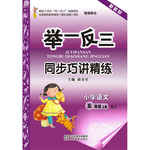题目内容
I should do these things ________.
- A.of my own
- B.in my own
- C.with my own
- D.on my own
D

练习册系列答案
 举一反三同步巧讲精练系列答案
举一反三同步巧讲精练系列答案 口算与应用题卡系列答案
口算与应用题卡系列答案
相关题目
---Mum, I’m stressed out.
--- I think you ____ listen to some music..
|
A.must |
B.can’t |
C.should |
D.shouldn’t |